Islamic Republic Blocks Access To Iranian Moderate Website
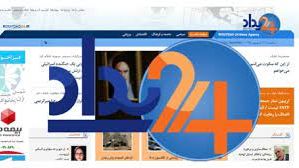
Moderate Iranian news website Rouydad 24, which has been a relatively good source of news about developments in Iran, has been blocked by the country’s authorities.

Moderate Iranian news website Rouydad 24, which has been a relatively good source of news about developments in Iran, has been blocked by the country’s authorities.
The media outlet said on Twitter Thursday that the punitive measure was taken without any prior notices, and it is not clear who ordered such a hasty action. It is not clear what specific report triggered the measure.
The news website closed to Iran’s ‘reformists’ published an interview with Amjad Amini, the father of Mahsa (Zina) Amini, a few months ago. Mahsa Amini was the Kurdish Iranian woman whose death in the custody of ‘hijab police’ sparked the current wave of antiregime protests, the biggest the Islamic Republic has faced since its establishment in 1979. Nazila Maroufian and Marzieh Amiri, the outlet’s journalists, were imprisoned temporarily over the interview and their reports on the protests.
The internet filtering committee of the Islamic Republic is chaired by Mohammad Jafar Montazeri, the Islamic Republic’s prosecutor general. Before the site was filtered, Tehran prosecutor Ali Salehi had talked to the media about a lawsuit against the manager of the website for publishing stories about the chemical attacks on Iranian schoolgirls that led to hundreds of girls hospitalized without any real explanation by the Islamic Republic's authorities.
For more than 25 years, intelligence and judicial officials under the control of Supreme Leader Ali Khamenei’s office have been closing newspapers, banning books and films, as well as arresting and imprisoning hundreds of Journalists.
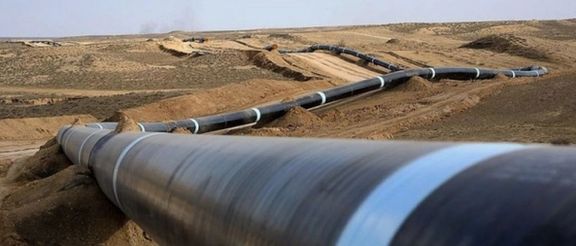
The Biden administration has agreed to a sanctions waiver that will see the Islamic Republic pocket a $500 million payment from Iraq for electricity and natural gas Baghdad imports.
According to a report by Washington Free Beacon on Friday, the administration has given the go-ahead for a sanctions waiver issued by Secretary of State Antony Blinken and transmitted to Congress earlier this week, authorizing Iraq to pay Iran.
The latest sanctions waiver permits "the Trade Bank of Iraq to engage in financial transactions … with the Central Bank of Iran in connection with the purchase of electricity." The payment will be in cash, the report says, something the Iranian regime needs desperately amid a financial crisis that has seen the Iranian currency drop by more than 50 percent since September.
Blinken signed the waiver on March 17, one day after reports surfaced about Iran's claims of imminent receiving of the $500 million, which elicited a denial from the Treasury Department.
Earlier in the month, Hamid Hosseini, the chairman of the Iran-Iraq chamber of commerce claimed that the United States has allowed Iraq to release $500 million of its debts to Iran. Iraq owes Tehran more than $10 billion for energy imports because US banking sanctions do not allow dollar transfers to Iran. However, Hosseini said that Iraq's debt has reached $18 billion.
"Of course the Biden administration lied that they wouldn't waive sanctions on Iran just days before they did so," said Senator Ted Cruz (R., Texas), adding, "They know that by allowing money to pour into Iran, they are not only endangering the safety and security of Americans but also undermining everything they claim to believe about defeating [Vladimir] Putin.”
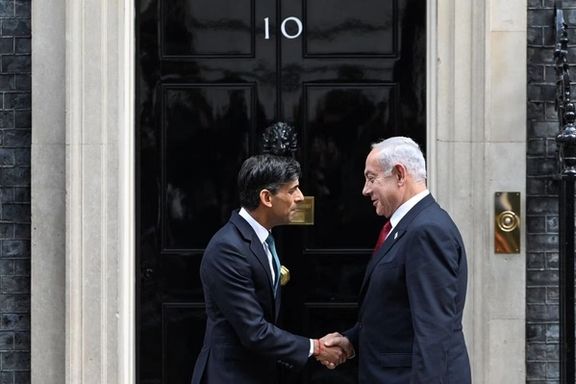
Israeli Prime Minister Benjamin Netanyahu met with his British counterpart Rishi Sunak in London to discuss where Iran’s nuclear threat was discussed among other issues.
Readouts of the Friday meeting from both sides said the two talked about the security and defense challenges they share, including the threat posed by Iran, as well as ways to strengthen the relationship between Britain and Israel.
Netanyahu also invited Sunak for an official visit to Israel, the Israeli statement said. He left Downing Street less than an hour after he arrived as hundreds of protesters gathered at the gates of No 10 to demonstrate against the Israeli prime minister’s policies, especially his overhaul of the judiciary.
Downing Street said that in his meeting with Netanyahu, Sunak "stressed the importance of upholding the democratic values that underpin our relationship, including in the proposed judicial reforms in Israel.”
It added that the two men also discussed the war in Ukraine and Iran's "destabilizing activity", as well as its nuclear program, and agreed that their “governments would continue to work closely together to push back against aggression and manage the risk of nuclear proliferation.”
According to a statement from Netanyahu’s office before his London trip, his meetings are set to focus on the need to formulate a “united international front” against Iran in order to stop its nuclear program.
Earlier in the month, Israeli Foreign Minister Eli Cohen was in London to argue for Jerusalem’s position about the Islamic Republic’s threat and bolster bilateral economic ties.
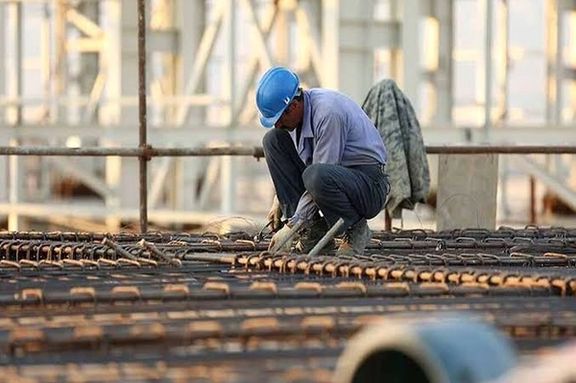
A petition launched against the meagre minimum wage increase for the new Iranian year violates the labor law by disregarding the inflation rate, critics say.
The petition which was launched on March 20, the last day of the previous Iranian calendar year, has already been signed by almost 15,000 people, despite the petition website having been blocked by the government. The text of the petition calls the 27 percent increase in the minimum wage to 82 million rials per month ($180) for a family of 3.3, including benefits, “unfair”.
The minimum wage in Iran is determined by a council composed of government, business, and government-approved unions, and in fact it sets the income for most wage earners.
The petition alleges that representatives of employers and the government which it calls “the biggest employer” imposed their bidding on the workers’ representatives and demands adjustment in the make-up of the council to allow workers have a bigger say in its decisions.
“This meager increase in the deplorable current economic circumstances and the several-fold increase, even in the basic costs of an ordinary life, is not logical or legal in any way,” the petition said.
Workers and their representatives say the low minimum wage increase was a “shock” to them. “This level of difference between the inflation rate and the minimum wage increase is unprecedented,” Hassan Izadi, an official of Labor House in Gilan Province said while demanding the parliament’s intervention.
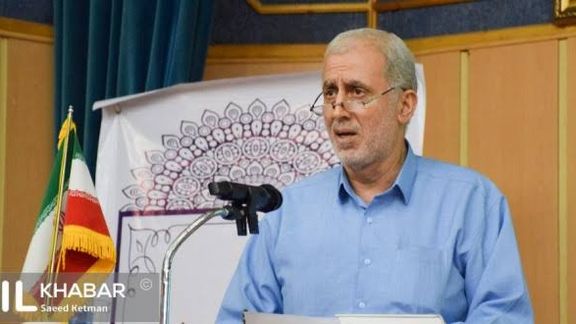
Iran has one of the lowest minimum wages in the world, but salaries were increasing from 2000-2010 when the minimum wage hit a record high of about $275 in 2010. This coincided with the time when the United Nations Security Council began imposing sanctions to force Tehran to roll back its nuclear program.
A few months into the presidency of Ebrahim Raisi last year, when inflation was around 40 percent, the High Council of Labor increased the minimum wage by an unprecedented 57 percent after two consecutive years of very high inflation. At the exchange rate of the time the minimum wage last year almost equaled $220.
Many politicians and commentators have warned that rising prices and declining incomes will lead to more protests in the coming months.
This year’s increase brings the monthly minimum wage (without benefits) down to around $120 although the overall rate of inflation has increased to around 50 percent and to at least 70 percent in the food group while rents have also hugely gone up in most cities.
Authorities keep promising to control inflation. In his New Year speech on March 21, Supreme Leader Ali Khamenei dubbed the new year as “the year of bringing inflation under control”, a promise also repeated by Raisi in his speech, but reminiscent of similar slogans in previous years.
Wages have become a fraction of what workers need to survive during five years of high double-digit inflation and huge devaluation of the national currency, particularly during the past year. The rial has fallen 13-fold since 2018 when the United States withdrew from the 2015 nuclear deal and imposed tough economic sanctions.
Some 60 percent of Iranians have fallen into what government officials describe as poverty and can no longer afford meat and even fruit and vegetables, with consumption dropping by half.
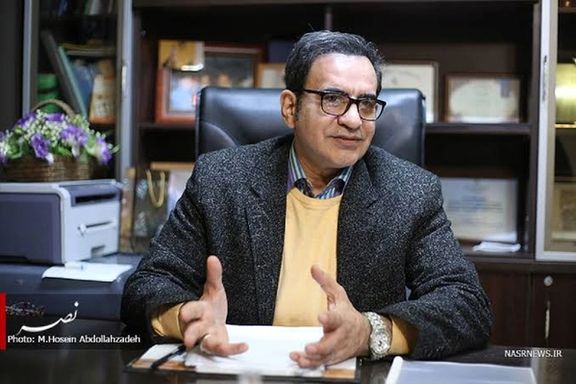
“How is it that the government that set the poverty line at 145m rials monthly income sets half of this amount as minimum wage for workers,” said Ali-Asghar Najjari, an official of the Labor House of Zanjan Province. He also accused officials of trampling on the Labor Law which requires minimum wage to be proportionate with the inflation rate.
“We must remind [economy minister] that the government and its economic team are sadly not capable to deliver on their promises of lowering inflation,” Najjari said referring to promises to workers.
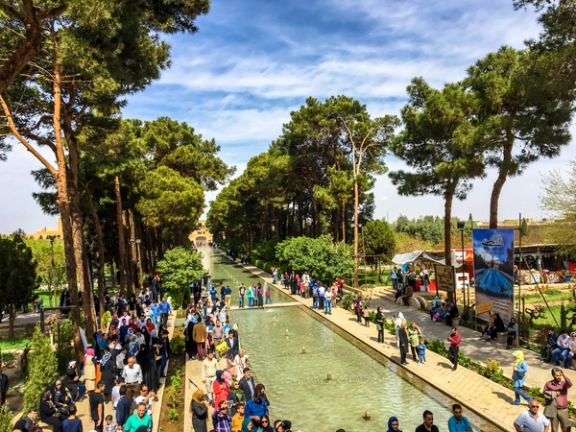
Amid simmering tensions over the observance of the Iranian regime’s strict Islamic dress code, police arrested three Iranians who confronted hijab enforcers.
The incident, which happened in one of the tourist hubs of the central city of Yazd on Tuesday, was reported by the Iranian media on Thursday.
Apparently, hijab enforcers confronted an Iranian woman who reportedly was not covering herself in public, a common sight in society after more than six months of protests ignited by the death of 22-year-old Mahsa Amini in the custody of ‘hijab police’ in September 2022. The woman, along with two of her companions, started quarreling with the hijab enforcer leading to a scuffle and the arrest of citizens.
State media claim that the hijab enforcer was beaten by the protesting people, but such allegations have often turned out to be inaccurate by officials to justify its crackdown on protesters.
Such confrontations have become more frequent in recent months as people are outraged by the regime’s brutal acts to enforce mandatory rules. Citizens are also emboldened by widespread public defiance. The country’s parliament is planning draft new repressive measures to further crackdowns on those defying mandatory hijab, including increased surveillance and cutting access to social services.
As the Holy Month of Ramadan starts, Iran's police warned Wednesday that there will be strict punishments for those caught eating in public during fasting hours. Every year police enforce a national plan to deal with those who break Ramadan rules in public, and transgressors are sometimes sentenced to months of detention and lashes.
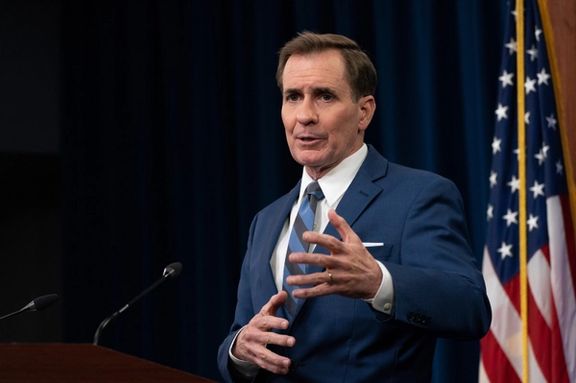
Tehran-linked groups targeted US forces in Syria for a second day in a row Friday, after the United States conducted an air strike against their bases following a drone strike Thursday.
White House National Security Council spokesman John Kirby said no American personnel were hurt in the new attack in northeast Syria, calling the incident an initial reaction to US retaliatory strikes on Iran-aligned groups in the area.
"It is not uncommon, when we take a retaliatory strike like this, for them to answer right back with some ineffective rocket fire. And these were largely, completely ineffective," Kirby told MSNBC. "Nobody was hurt, no US casualties at all."
The attack on Thursday with a suicide drone killed a US contractor and injured several servicemen. The US immediately retaliated with air strikes.
The US intelligence community assessed that the one-way attack drone was Iranian in origin, the Pentagon said, a conclusion that could further aggravate already strained relations between Washington and Tehran.
The new rocket attack by Iran-linked forces targeted a US base near the Al-Omar oil field. Lebanese pro-Iranian TV channel Al Mayadeen was first to report the attack.
The attacks by Iranian-led groups come just two weeks after Tehran signed a deal with Saudi Arabia to restore relations, a move seen by analysts as potentially beneficial for stability in the region.